|
DAVINCI - BEATRICE D'ESTE
The Real Beatrice
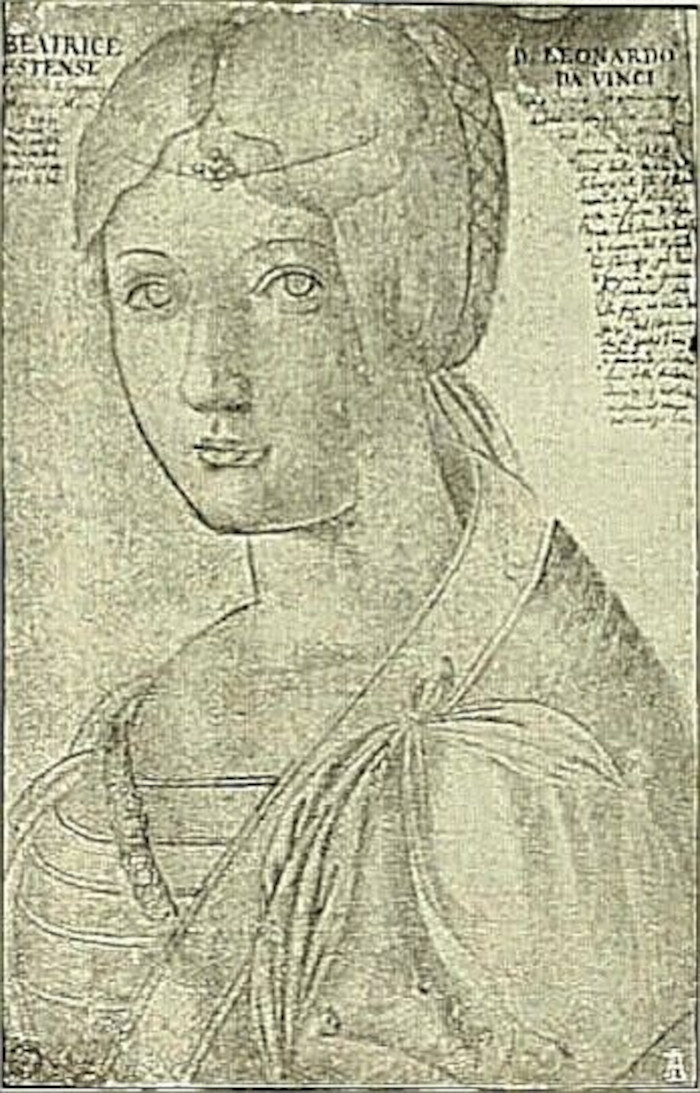
Leonardo da Vinci, Public domain, via Wikimedia
Commons
1495 |
- Beatrice d'Este (1475-1497).
-
Second oldest (elder sister Isabella d'Este).
- Her
father, Niccolo III, Signore di Ferrara, Modena e Reggio (1393-1441), considered her a disgrace because she wasn't a male.
- Her father beheaded a wife.
- He died of poisoning in
1441.
- King Ferrante
(King Ferdinand I) of Naples,
her grandfather on her mother's side, convinced her
mother to leave both Beatrice and a newborn brother in Naples
when she was 2.
- She lived there in Duchy of Ferrara for 8 years and was
adopted by her grandfather.
- Mixture of Catalan, Castilian and Italian.
- Called herself 'donna Beatrice de Aragonia.'
- Neapolitan.
This thy stature is like to a palm tree, and thy breasts to clusters [of grapes]. (Song of Solomon 7:7) |
- She was
reluctantly promised in marriage to Duke of Bari Ludovico
Maria Sforza (1452-1508), the Moor,
39, at age
10.
- He first assumed the regency from his sister-in-law Bona, then took over from his deceased nephew Gian Galeazzo, whom some say he poisoned
(Wikipedia).
- Her grandfather resisted after her father entered
negotiations with the Duke, but her grandfather had no control over the
outcome.
- Due to her age, the marriage was pushed back
to May 1490, because the Duke postponed several times.
- He was
already in a
relationship with Cecilia Gallerani, his mistress.
-
There's a lot of confusion about who the 'real' Beatrice is?
Was she chubby and plain or was she beautiful?
Thou shalt betroth a wife, and another man shall lie with her: thou shalt build an house, and thou shalt not dwell therein: thou shalt plant a vineyard, and shalt not gather the grapes thereof. (Deuteronomy 28:30) |
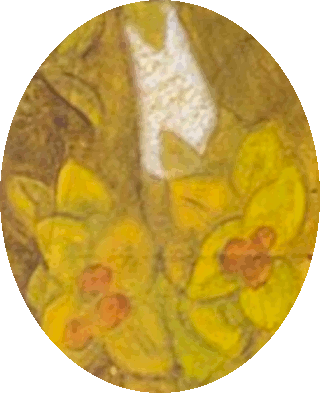 |
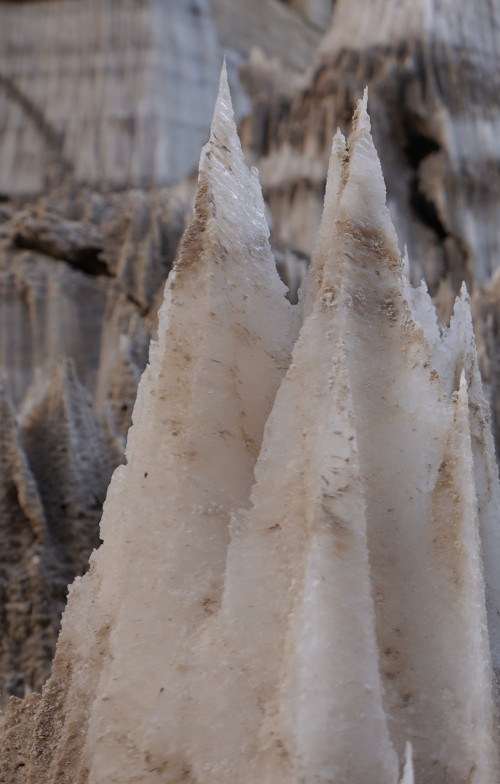
Salt pillar |
- Finally the wedding
took place in 1492.
- Beatrice is just a political pawn, a
Jewish slave girl and prostitute (once she married and dowry
was paid).
- Political alliance between the Ferrarese house of Este and the Milanese house of Sforza.
- Ludovico regarded her as a
15-year-old child.
- Now Milanese.
- Leonardo DaVinci was in charge of
the wedding plans.
- Beat rice.
- Under the Old
Covenant, law, in bondage.
For their vine [is] of the vine of Sodom, and of the fields of Gomorrah: their grapes [are] grapes of gall, their clusters [are] bitter. (Deuteronomy
32:32) |
- Beatrice with her elephant in her
pumpkin.
When thou gatherest the grapes of thy vineyard, thou shalt not glean [it] afterward: it shall be for the stranger, for the fatherless, and for the widow. (Deuteronomy
24:21) |
- Cinderella.
- Happy by Nature and Very Pleasing.
- Noted for her beauty, her fashion, her taste, and her zest for life.
- Hook.
Take us the foxes, the little foxes, that spoil the vines: for our vines [have] tender grapes. (Song of Solomon
2:15) |
- Rice NST (Natural Selection Tour).
- Did Travis Rice survive avalanche?
- Survived a heavy avalanche.
- Be a T Rice.
-
Empowered.
And in the vine [were] three branches: and it [was] as though it budded, [and] her blossoms shot forth; and the clusters thereof brought forth ripe grapes. (Genesis 40:10) |
- Chalice.
And Pharaoh's cup [was] in my hand: and I took the grapes, and pressed them into Pharaoh's cup, and I gave the cup into Pharaoh's hand. (Genesis 40:11) |
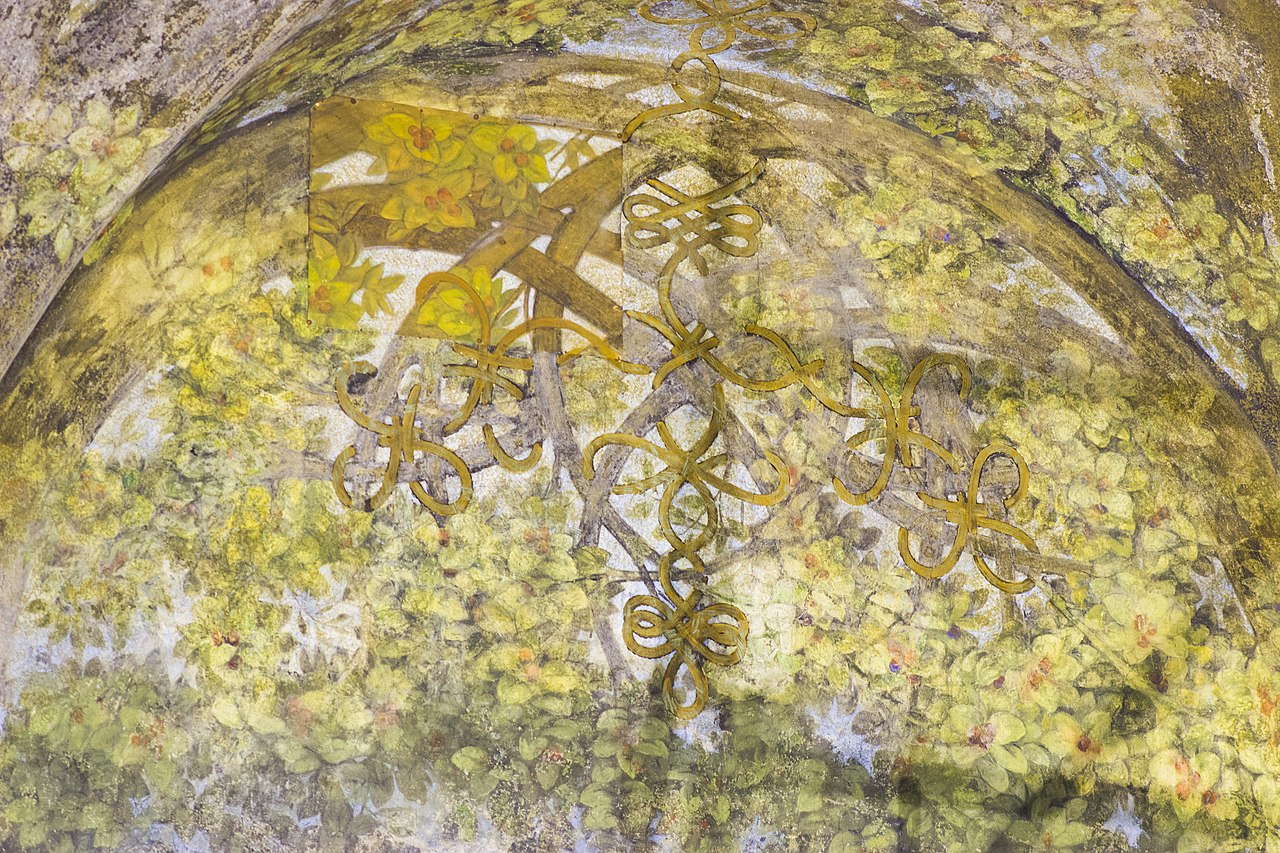
Leonardo da Vinci, Public domain, via Wikimedia
Commons
Sala delle Asse - 1498
 |
- Sala delle Asse (room of the wooden planks), is a large room in the Castello Sforzesco in Milan, the location of a painting in tempera on plaster by
DaVinci, dating from about 1498.
- The room was painted in
a trompe l’oeil scheme depicting trunks, leaves, fruits, and knots
and represented a pergola outdoors.
- Salai (DaVinci
assistant) wasn't an ass like modern historians think, but he
worked on it!
Binding his foal unto the vine, and his ass's colt unto the choice vine; he washed his garments in wine, and his clothes in the blood of grapes. (Genesis 49:11) |
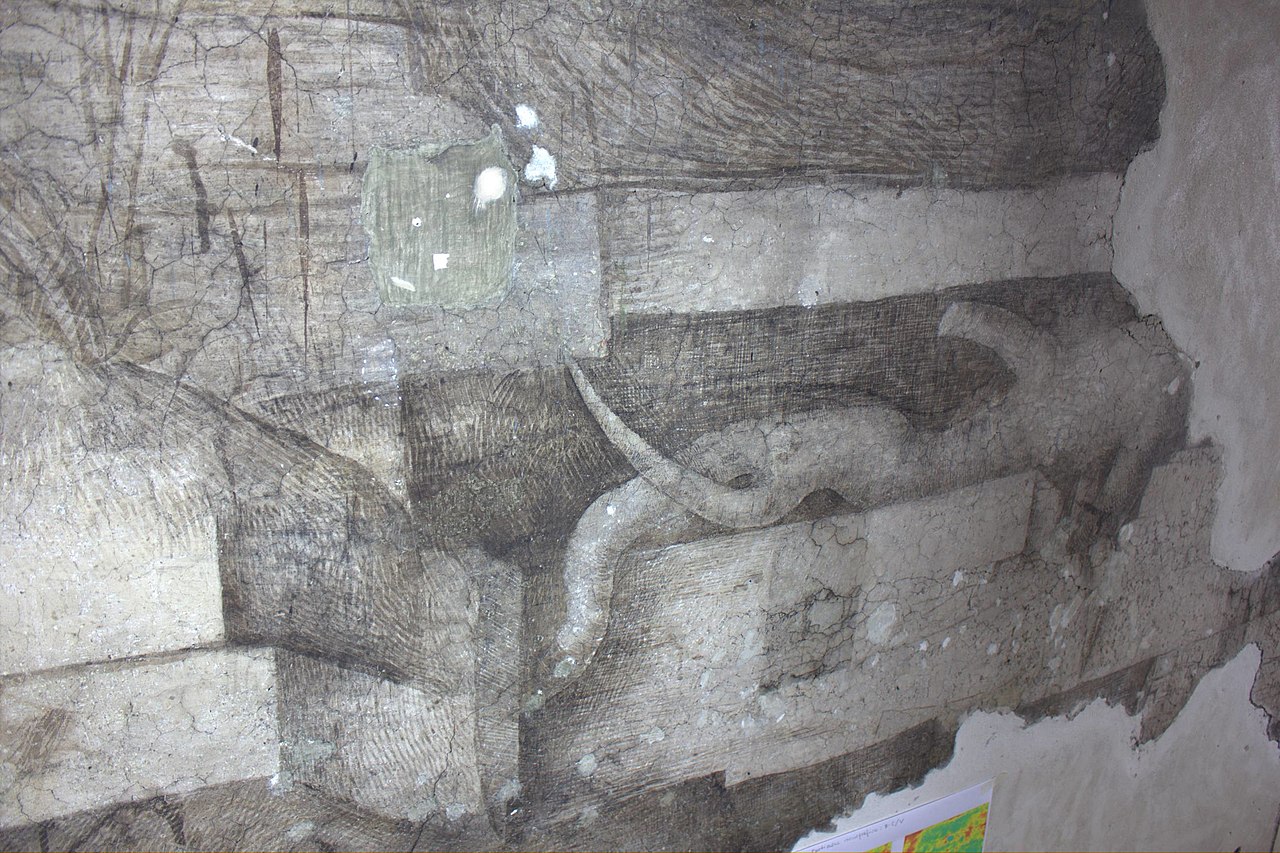
Leonardo da Vinci, Public domain, via Wikimedia
Commons
Sala delle Asse Roots - 1498 |
- During the restoration of Sala delle
Asse in 1950, drawings of a root system (in monochrome) were
discovered.
- They show the root system breaking the side walls
and the suggest “the creation of thin, slanting trunks, springing from the roots and then joining the decoration on the ceiling”
(Wikipedia).
That which groweth of its own accord of thy harvest thou shalt not reap, neither gather the grapes of thy vine undressed: [for] it is a year of rest unto the land. (Leviticus 25:5) |
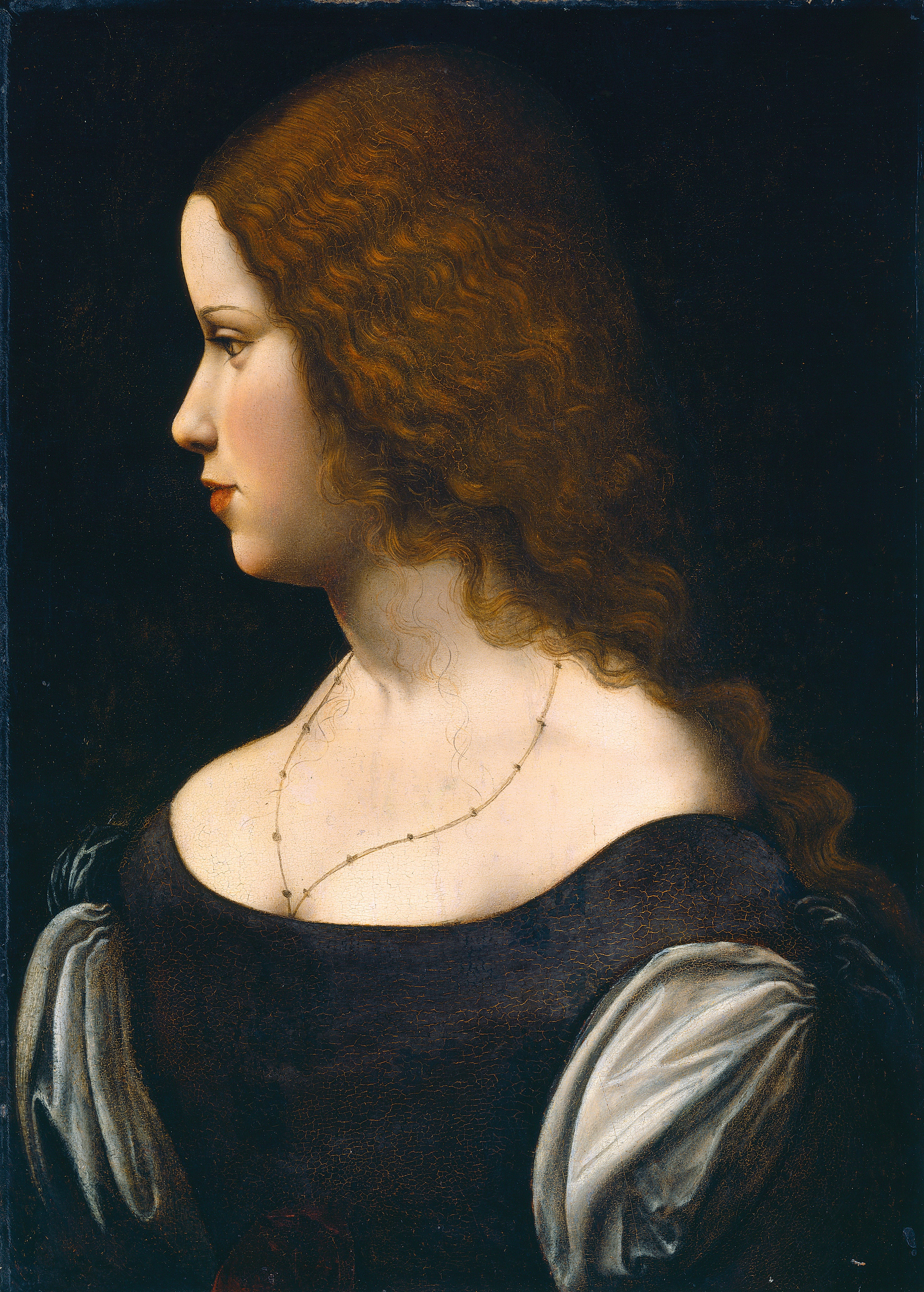
Leonardo da Vinci, Public domain, via Wikimedia
Commons
1500 |
- She was one of the most important personalities of the time and, despite her short life, she was a major player in Italian politics.
-
In middle of Milanese resistance against the enemy French during the first of the Italian Wars.
- She acted as an ambassador for her husband in order for him to be recognized as Duke of Milan.
The mission failed, however, he was finally recognized as Duke of Milan in 1494.
- The marriage proved to be unusually harmonious, in spite of Ludovico’s mistresses.
-
The court of Milan the most splendid not only in Italy but in
Europe and had an enlightened patronage of artists and scholars.
- Ludovico, considered enlightened, generous, and peaceful, sponsored extensive work in civil and military engineering, such as canals and fortifications
(buffaloah.com).
A jubilee shall that fiftieth year be unto you: ye shall not sow, neither reap that which groweth of itself in it, nor gather [the grapes] in it of thy vine undressed. (Leviticus 25:11) |
- Rootstock.
- Cassone, placed in
the bridal suite.
- Abiezer was son of Manasseh who received an inheritance in Canaan.
And he said unto them, What have I done now in comparison of you? [Is] not the gleaning of the grapes of Ephraim better than the vintage of Abiezer? (Judges 8:2) |

Male son |
- Birth of two sons by age 20 in 1493 and 1495.
- Beatrice's primary concern
was to ensure her son the succession to the Duchy of Milan,
which legitimately belonged to the son of her cousin Isabella
d'Este aka Isabella of Aragon/Naples (1470-1524), who was Duchess of Milan.
- Grandfather, King Ferrante (King Ferdinand I) of
Aragon/Naples, did not want to start a war (between his two
granddaughters).
- In January 1494, the king died and war
broke out between his son, King Alfonso, and her husband.
- Alfonso took over Bari and Ludovico called for the aid of
Charles VIII of France to conquer Alfonso's Naples.
-
Beatrice met with Charles VIII and his cousin, Louis of Orléans
on September 11, 1494, at a peace conference in Vercelli, and were met by riots.
And they went out into the fields, and gathered their vineyards, and trode [the grapes], and made merry, and went into the house of their god, and did eat and drink, and cursed Abimelech
(Philistine king). (Judges
9:27) |
- Cane (dog in Italian).
- Both
Charles and his cousin, Louis, performed French style 'kiss and touch' which riled the
Italians who did not want French paws on their women.
- King Charles wanted to see her dance and requested a portrait of her.
- Beatrice was a slave girl, she was the daughter of
Biblical Jacob and Leah (sold into slavery and prostitution
via lower dimensional 'marriage' under the Old Covenant, not a
soul connection).
- Jews in Milanese royal court.
He shall separate [himself] from wine and strong drink, and shall drink no vinegar of wine, or vinegar of strong drink, neither shall he drink any liquor of grapes, nor eat moist grapes, or dried. (Numbers 6:3) |
- On October 21, 1494, the legitimate Duke
of Milan Gian Galeazzo died and Ludovico obtained by acclamation of the senate that the ducal title passed to him and his legitimate descendants, thus bypassing in the succession the son that Gian Galeazzo left
(Wikipedia).
- Beatrice died in childbirth on January 3, 1497, age
21.
In those days saw I in Judah treading wine presses on the sabbath, and bringing in sheaves, and lading asses; as also wine, grapes, and figs, and all [manner of] burdens, which they brought into Jerusalem on the sabbath day: and I testified [against them] in the day wherein they sold victuals. (Nehemiah 13:15) |
- Death's door.
Beatrice appeared in good health on the day before her death. She was seen riding her chariot through the park. She went inside the Dominican Church and paid her devotions at the altar. There was dancing in her rooms that night until she suddenly became ill. She died a little after midnight, after giving birth to a stillborn son. (historyofroyalwomen.com)
|
- On the night of her death, the skies
over Milan were filled with firey flames.
- Spiritual cleansing.
And what the land [is], whether it [be] fat or lean, whether there be wood therein, or not. And be ye of good courage, and bring of the fruit of the land. Now the time [was] the time of the firstripe grapes.(Numbers 13:10) |
- The walls of Beatrice's garden
fell with a sudden crash, although there wasn't any natural
cause such as wind or earthquake.
And he fenced it, and gathered out the stones thereof, and planted it with the choicest vine, and built a tower in the midst of it, and also made a winepress therein: and he looked that it should bring forth grapes, and it brought forth wild grapes.(Isaiah 5:2) |
- Chosen.
- She was buried on 12 January in the Certosa di Pavia, which was hung with black.
- All those who attended carried lit torches while wearing black.
All throughout the Duchy, every possible honour was paid to Beatrice. One hundred requiem masses were said daily for the repose of her soul, while a hundred tapers were kept burning day and night around the sarcophagus supported by lions in which her remains were interred. Her husband attended two or three masses every day. (historyofroyalwomen.com)
|
- 4 years after Beatrice's death in 1499, Milan was taken over by the French army led by king Louis XII, and Ludovico Sforza fled.
After her death, Beatrice’s secretary Vincenzo Calmeta
wrote of her, “When Duchess Beatrice died
everything fell into ruin. That court, which had been
a joyous Paradise, became a dark and gloomy Inferno,
and poets and artists were forced to seek another
road.”.
|
- Italy wasn't unified again until 1861.
-
Both of Ludovico and Beatrice's sons eventually became Dukes
of Milan.
- Machiavelli accused Ludovico of 'inviting' Charles VIII
to invade Italy, leading to foreign domination, however,
further assessment of his actions shows this was not true
(Charles perceived weakness so he invaded).
- The valley or brook of Eshcol was
where the Hebrew messengers, who went to spy the land of
Canaan, cut a bunch of grapes so large that it took two men to
carry.
And they came unto the brook of Eshcol, and cut down from thence a branch with one cluster of grapes, and they bare it between two upon a staff; and [they brought] of the pomegranates, and of the figs. (Numbers
13:23) |
- Valley of Eshcol.
The place was called the brook Eshcol, because of the cluster of grapes which the children of Israel cut down from thence. (Numbers
13:24) |
- Ripe grapes are plucked and eaten
in the field.
When thou comest into thy neighbour's vineyard, then thou mayest eat grapes thy fill at thine own pleasure; but thou shalt not put [any] in thy vessel. (Deuteronomy 23:24) |
- Wild grapes.
- Salacious.
What could have been done more to my vineyard, that I have not done in it? wherefore, when I looked that it should bring forth grapes, brought it forth wild grapes? (Isaiah 5:4) |
- Gleaning grapes.
Yet gleaning grapes shall be left in it, as the shaking of an olive tree, two [or] three berries in the top of the uppermost bough, four [or] five in the outmost fruitful branches thereof, saith the LORD God of Israel. (Isaiah
17:6) |
- Mother Nature shaking things up.
When thus it shall be in the midst of the land among the people, [there shall be] as the shaking of an olive tree, [and] as the gleaning grapes when the vintage is done. (Isaiah
24:13) |
- Blocked.
- Soulless, vacant
and greedy.
- Creating an unsafe environment.
- Liar
with noteriety, fake good person, evil intentions.
I will surely consume them, saith the LORD: [there shall be] no grapes on the vine, nor figs on the fig tree, and the leaf shall fade; and [the things that] I have given them shall pass away from them. (Isaiah
24:13) |
- Louis XII of France overtook the duchy of Milan
after the citizens grew tired of excessive taxation.
- Ludovico
tried to retake the duchy with German and Swiss mercenaries.
- In April 1500 Ludovico was captured by the French while attempting to escape, disguised as a Swiss.
His fall was celebrated all over Italy. He was imprisoned in the castle of Loches in Touraine, from which he tried in vain to escape. He died there, still unresigned, in May 1508. (buffaloah.com)
|
- Roaring from on high.
Therefore prophecy thou against them all these words, and say unto them, The LORD shall roar from on high, and utter his voice from his holy habitation; he shall mightily roar upon his habitation; he shall give a shout, as they that tread [the grapes], against all the inhabitants of the earth. (Jeremiah 25:30) |
- Mask, two-faced.
If grapegatherers come to thee, would they not leave [some] gleaning grapes? if thieves by night, they will destroy till they have enough. (Jeremiah
49:9) |
- Authority done.
- They need to
escape.
What mean ye, that ye use this proverb concerning the land of Israel, saying, The fathers have eaten sour grapes, and the children's teeth are set on edge? (Jeremiah
49:9) |
- Money, fancy things and status.
- Abominations.
I found Israel like grapes in the wilderness; I saw your fathers as the firstripe in the fig tree at her first time: [but] they went to Baalpeor, and separated themselves unto [that] shame; and [their] abominations were according as they loved. (Hosea 9:10) |
- Illuminated.
- Shining.
If thieves came to thee, if robbers by night, (how art thou cut off!) would they not have stolen till they had enough? if the grapegatherers came to thee, would they not leave [some] grapes? (Obadiah 1:5) |
- Fake reality.
- Fractured phantom.
- Shallow, false construct, bubble,
- Cart that went the
wrong way.
- Disappointing vineyard.
- Curtain torn.
Ye shall know them by their fruits. Do men gather grapes of thorns, or figs of thistles? (Matthew 7:16) |
- Transformative path of spiritual
growth and discovery.
- Cleansing.
- Ice melting.
For every tree is known by his own fruit. For of thorns men do not gather figs, nor of a bramble bush gather they grapes. (Luke 6:44) |
- Beloved hill.
- God, the farmer,
expects to harvest good grapes (justice and righteousness),
but instead, he gets wild grapes.
- He painstakingly
showered his vines with goodness, love, and grace.
- Wild grapes
(stinking and worthless) are sour, inedible, and entirely useless for making wine.
- Only fit for destruction.
My beloved had a vineyard
on a very fertile hill.
He dug it and cleared it of stones,
and planted it with choice vines;
he built a watchtower in the midst of it,
and hewed out a wine vat in it;
and he looked for it to yield grapes,
but it yielded wild grapes.
And now, O inhabitants of Jerusalem
and men of Judah,
judge between me and my vineyard.
What more was there to do for my vineyard,
that I have not done in it?
When I looked for it to yield grapes,
why did it yield wild grapes?”
(Isaiah 5:1–4, ESV) |
- The people of Israel responded with violence and bloodshed (Isaiah 5:7).
- Israel was established as a model among nations by the
God of Israel, Yahweh.
- But the people only produced
wild grapes so he had to bring judgment on the fruitless
vineyard by destroying it.
Isaiah outlines six “woes,” naming the six sins that have provoked God’s anger and brought His judgment upon the land. These six sins form a summary, not an inventory, of the wild grapes of Isaiah’s song. They are predominately the sins of the proud and arrogant: greed, covetousness, and extortion (Isaiah 5:8–10); drunkenness, revelry, and fleshly self-indulgence (verses 11–17); carelessness, hardheartedness, and mockery (verses 18–19); deception and perversion (verse 20); pride and conceit (verse 21); injustice and corruption (verses 22–25).
(Biblical Answers) |
- God's judgment is against 1st century Jewish leaders.
-
He lay's out 7 woes for the scribes and Pharisees which
sound just like the wild grapes.
- Wild grapes are the fruits of the corrupt nature, fruit according to the crabstock, not according to the engrafted branch, from the root of bitterness.
- Seeing the light.
- For those who have found new birth in Christ, wild
grapes represent the worthless deeds of our past.
For once you were full of darkness, but now you have light from the Lord. So live as people of light! For this light within you produces only what is good and right and true. Carefully determine what pleases the Lord. Take no part in the worthless deeds of evil and darkness; instead, expose them. (Ephesians 5:8-11) |
- Emerging from the cocoon.
- A new
day.
- The Holy Spirit produces this kind of fruit in our lives: love, joy, peace, patience, kindness, goodness, faithfulness, gentleness, and self-control.
But you are a chosen people, a royal priesthood, a holy nation, God’s special possession, that you may declare the praises of him who called you out of darkness into his wonderful light. Once you were not a people, but now you are the people of God; once you had not received mercy, but now you have received mercy. (1
Peter 2:9-11) |
- Transformation.
- Unfolding.
-
Moving from dark to light.
But the fruit of the Spirit is love, joy, peace, forbearance, kindness, goodness, faithfulness. (Galatians 5:22) |
- Leonardo's portal in the grape.
And another angel came out from the altar, which had power over fire; and cried with a loud cry to him that had the sharp sickle, saying, Thrust in thy sharp sickle, and gather the clusters of the vine of the earth; for her grapes are fully ripe. (Revelations 14:18) |
- World turning in a new day.
"The days are coming,” declares the LORD, “when the reaper will be overtaken by the plowman and the planter by the one treading grapes. New wine will drip from the mountains and flow from all the hills." (Amos
9:13) |
- And the moral of the story is
that even with all the wealth and power, everyone has the
capability to save themselves, despite their evil deeds.
-
A big part of their problem seems to be historians (she was
only 21 when she died).
- None of us know what's in another
person's heart, plus that can change over time.
- Their
biggest problem could apparently be who they worshiped and
their beliefs.
- Lastly, nature does take care of things.
- Beatrice was his good luck charm.
After her death, everything fell apart for him, all his
political allies deserted him.
An icy wind, a wind of treachery, passes over the
whole of Italy, and very soon he can count no longer
upon any but states which are weak and menaced
themselves. From the moment her presence vanishes,
signs of unpopularity begin to manifest themselves.
Alliances are broken off, and rulers commence to
withdraw their support. By a sort of fatality which
cannot be really explained, the Moor sees all his
intriguing brought to nought, and his agents, who had
united the thread of it so well until then, now find
doors and mouths closed to them.
In April 1498, he learns of the death of Charles
VIII, and the accession to the throne of France of his
mortal enemy--the Duke of Orléans. From that time, the
curve of his destiny falls headlong. Rome abandons him
for the French, Venice as well; whilst the small
states on the frontier of Piedmont no longer dare to
give him their support. (Robert de La Sizeranne,
Beatrice D'Este and Her Court, 1924) |
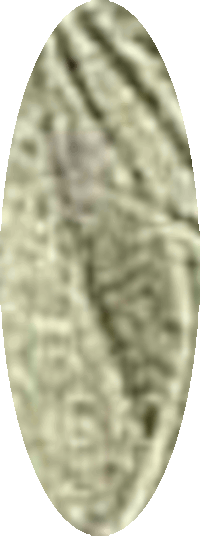 |
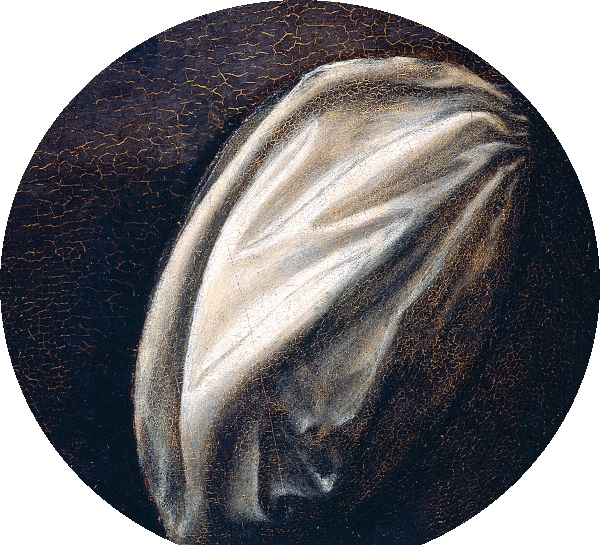
Kite |
Signed by Leonardo DaVinci
|
|

